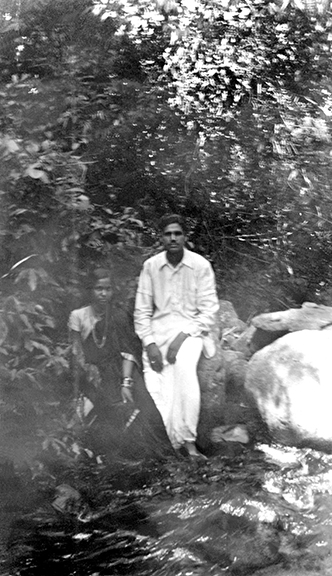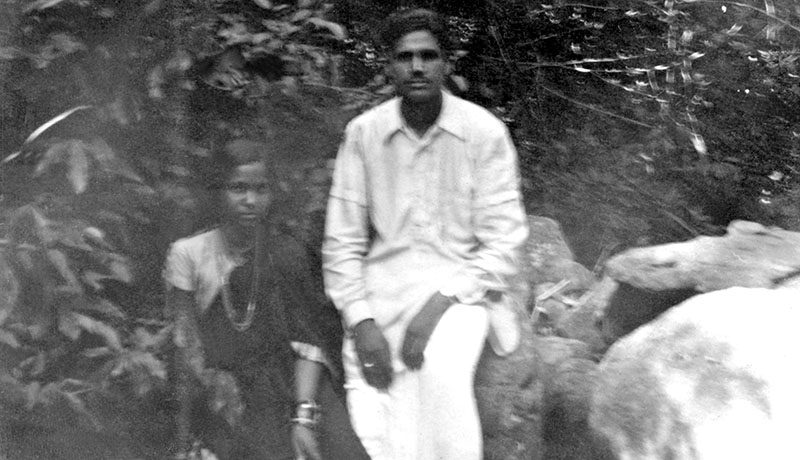 Srimati Velammai and her husband were concerned about Ramu’s future. He was twenty-three and still a bachelor when most men were married and had children. “If he doesn’t marry now,” his mother would fret, “he might be completely absorbed into the sannyas life without even tasting a life with a wife and children.” Ramu remained indifferent to their hints and prodding. His workshop filled most of his time, and his interest in a spiritual life had been strengthened by his time at the Perur Temple. Whenever these discussions were brought up, he thought of the various problems of his married friends—economic crises, family illnesses, obligations, and attachments. Eventually, he weighed the pros and cons of the grihastha (householder or married) life and decided the lessons to be learned in a family situation were valid and necessary. During the time Ramu served as the Temple Manager of the Perur Temple, he had become well-acquainted with one of the families, which was very active and helpful in the management. In fact, the head of the family had once been a trustee of the Temple. The daughter of this gentleman was very beautiful and very devout. Ramu had watched her regularly visiting the Temple and praying, and now he felt that she was the one he wished to marry. Respectfully he asked for his parents’ permission to take this young woman for a wife. The family was overjoyed with relief, particularly after the birth of first one and then another son. They were confident that Ramu was leading an exemplary family life. It went on smoothly, contentedly and lovingly.
Srimati Velammai and her husband were concerned about Ramu’s future. He was twenty-three and still a bachelor when most men were married and had children. “If he doesn’t marry now,” his mother would fret, “he might be completely absorbed into the sannyas life without even tasting a life with a wife and children.” Ramu remained indifferent to their hints and prodding. His workshop filled most of his time, and his interest in a spiritual life had been strengthened by his time at the Perur Temple. Whenever these discussions were brought up, he thought of the various problems of his married friends—economic crises, family illnesses, obligations, and attachments. Eventually, he weighed the pros and cons of the grihastha (householder or married) life and decided the lessons to be learned in a family situation were valid and necessary. During the time Ramu served as the Temple Manager of the Perur Temple, he had become well-acquainted with one of the families, which was very active and helpful in the management. In fact, the head of the family had once been a trustee of the Temple. The daughter of this gentleman was very beautiful and very devout. Ramu had watched her regularly visiting the Temple and praying, and now he felt that she was the one he wished to marry. Respectfully he asked for his parents’ permission to take this young woman for a wife. The family was overjoyed with relief, particularly after the birth of first one and then another son. They were confident that Ramu was leading an exemplary family life. It went on smoothly, contentedly and lovingly.
Every day he drove to work on his motorcycle. One evening as he drove home through the darkening trees, a picture came strongly into his mind. He seemed to see his wife lying on the bed at home with the neighbors standing by her body and saying that she was dead. Some people might have dismissed this as a busy young husband’s anxiety, but the vision persisted. On many evenings, Ramu had the same premonition. Five years after his marriage, Ramu did lose his wife. But, not exactly as in his premonitions. One day, his wife suddenly packed up and left him and their children behind. The Gounder community, being a very tight knit community, gathered around Ramu and his family. In those days, a wife leaving her husband and children was shocking and considered shameful. They decided to consider her dead to their lives and community and never spoke of her again. Ramu was surprised by his own sense of calm. There was nothing he could do; he had been through the alternatives so many times before. His attention turned to the welfare of his children.

Recent Comments